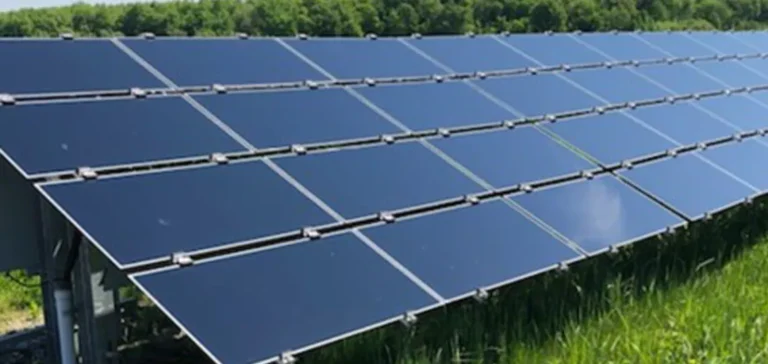Voltalia presented its SPRING transformation plan, a structured roadmap aimed at restoring profitability and strengthening its position in the renewable energy market. The programme targets a return to positive net income from 2026, supported by self-financed growth, cost reductions and a redesign of the operating model.
Financial and operational objectives through 2030
The group plans to add between 300 and 400 megawatts (MW) of capacity per year between 2026 and 2030 while maintaining a net debt to EBITDA ratio between 7.5 and 8. The EBITDA margin for power sales is expected between 70% and 72% by 2030, while the services margin should reach between 9% and 11%. In 2027, Voltalia forecasts total EBITDA between EUR300mn and EUR325mn, including EUR270mn to EUR300mn from the Power Sales activity.
Operating and construction capacity owned by Voltalia is expected to reach 4.2 gigawatts (GW) in 2027, rising to about 5 GW in 2030. These objectives align with increased optimisation, with a stricter selection of high-potential, mature projects in the development pipeline.
Strategic refocus on twelve priority markets
The company plans to exit non-strategic geographies, concentrating resources on up to twelve of the most promising countries. The technology portfolio will now focus exclusively on solar, onshore wind and battery storage. This reorientation is expected to generate between EUR300mn and EUR350mn ($322mn–$376mn) of cash inflows by 2028 and enable recurring cash savings of EUR35mn ($37mn) per year from 2026.
Voltalia will also divest non-core assets to streamline its industrial footprint. In parallel, the company intends to reinforce co-development and co-investment through targeted partnerships in order to preserve capital while supporting growth.
Operating model redesign and performance measurement
A dedicated subsidiary for construction and maintenance services will be created to clarify responsibilities and avoid overlaps. Each division will thus be able to focus on its core competencies while improving competitiveness in tenders. This new organisation will be accompanied by separate financial reporting for each activity: development, power sales and services.
In addition, an extra EUR10mn ($10.8mn) of annual savings is expected from 2026 through process optimisation, tighter control of construction execution and improved asset performance.
Initial impacts of SPRING and near-term outlook
The first half of 2025 saw a slight contraction in EBITDA to EUR78.3mn ($84.1mn), down 4% at current rates, affected by curtailment in Brazil and an unfavourable exchange rate. First-half revenue rose 8% to EUR257mn ($276mn), driven by strong growth in the Services activity at +50%.
Group net loss stands at EUR39.7mn ($42.7mn), mainly due to fewer disposals, the closure of the Equipment Supply activity and costs associated with the launch of the SPRING plan.
The company guides for full-year EBITDA between EUR200mn and EUR220mn ($215mn–$237mn) in 2025, with most commissioning scheduled for year-end. From 2028, Voltalia plans to resume dividend payments, marking a new step in its consolidation strategy.






















